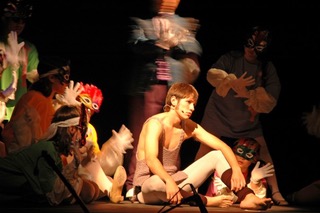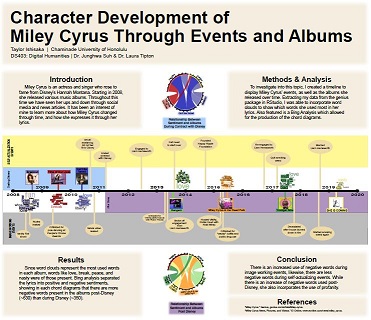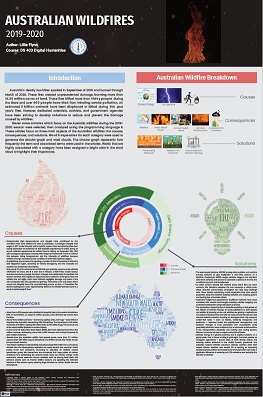
Like many of us, Blaze Mancillas’ 2020 didn’t go quite as he had planned.
The pandemic meant that the actor and comedian, a 2009 graduate of Chaminade, wasn’t able to audition as much as he had hoped, couldn’t do many comedy shows or other events and had to spend more time than he ever has in his (somewhat cramped) New York apartment.
But lockdowns and COVID precautions didn’t keep Mancillas from staying busy.
In fact, his work as a host on app-based music trivia game show “SongPop Live” earned him a 2020 Webby Award, which honors the “best of the internet” in everything from websites to apps. He also launched a podcast, called “Let’s Get Lit” that combines two of his loves—comedy and literature.

Reached on recent day, Mancillas was hopeful about 2021 would bring.
As the number of COVID infections in New York declined, auditions have slowly resumed—and he’s looking forward to new opportunities. He said that after a very difficult year for everyone, he’s grateful for what he has and is charged up to seek out new ways to hone his acting chops and share his comedy.
Mancillas scored a hosting role on “SongPop Live” before the pandemic started. When the city shut down, he was sent home with a lot of technical equipment and instructions on what to do next. He and the other three hosts finished out their work for the game show from the comfort of their living rooms.
It was a transition for Mancillas, who said before the pandemic he rarely spent much time at all in his apartment. Instead, he would always be out in the city—enjoying all that it has to offer. But he made the most of it and in October launched his new must-listen podcast, in which he reads from a classic book (the first season features “War of the Worlds”) and invites comedians on to offer commentary.
The podcast is already getting some buzz, including in Paste Magazine and on the Comedy Cake website. Mancillas describes it as a chance to actually read those books you were supposed to read in high school, with some great comedians to join you to keep things light and keep you laughing.
In a recent interview, Mancillas remembered his time at Chaminade fondly.

It was there that Mancillas discovered his love of acting. He scored leading roles in Chaminade productions of “The Elephant Man,” “Amadeus,” “Pippin” and “The Pirates of Penzance,” to name a few. From Chaminade, he headed to New York to study acting at Columbia University. He graduated with a Master’s in Fine Arts from Columbia in 2012, and has been building his career ever since.
In addition to doing stand-up comedy and hosting for “SongPop Live,” Mancillas has appeared on TV episodes, commercials and done motion capture acting for video games. He’s interested in doing more on-screen acting work but also wants to continue to build his chops as a game show host, he said.

At Chaminade, Mancillas was a communication major with a minor in performing arts. He credits three mentors—Music Professor Tim Carney, Father Robert Bouffier and Brother Gary Morris—with recognizing his talent, helping him muster the courage it takes to get out in front of an audience, and then challenging him to apply for graduate school on the mainland.
“They left a profound impact on me,” he said. “They were really wonderful.”
Mancillas is also thankful to Chaminade for giving him the space to find his passions—and not just in acting. At the university, Mancillas was also on the cross country and golf team, and was an announcer for basketball games. “I was running all over the place,” he said, adding that Chaminade helped him grow as a person and an artist. “There are lots of opportunities to try different things.”
To learn more about Mancillas’ work, including his new podcast, head to his website.












